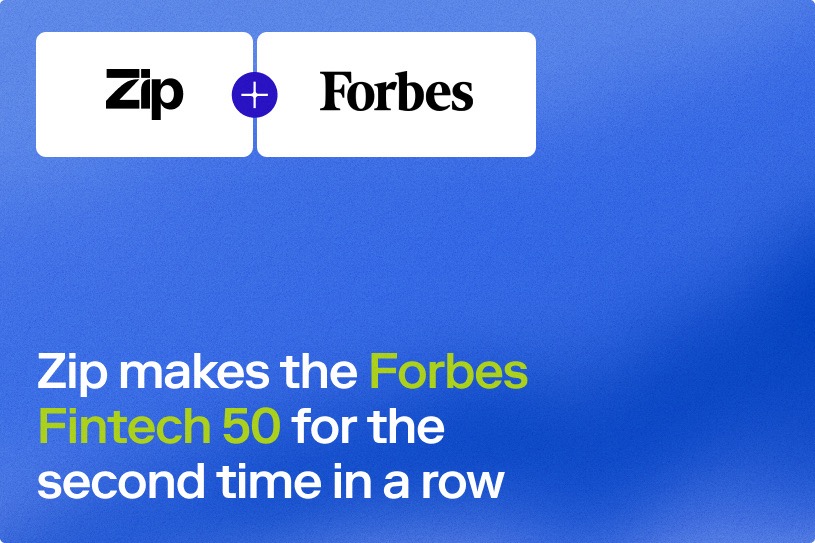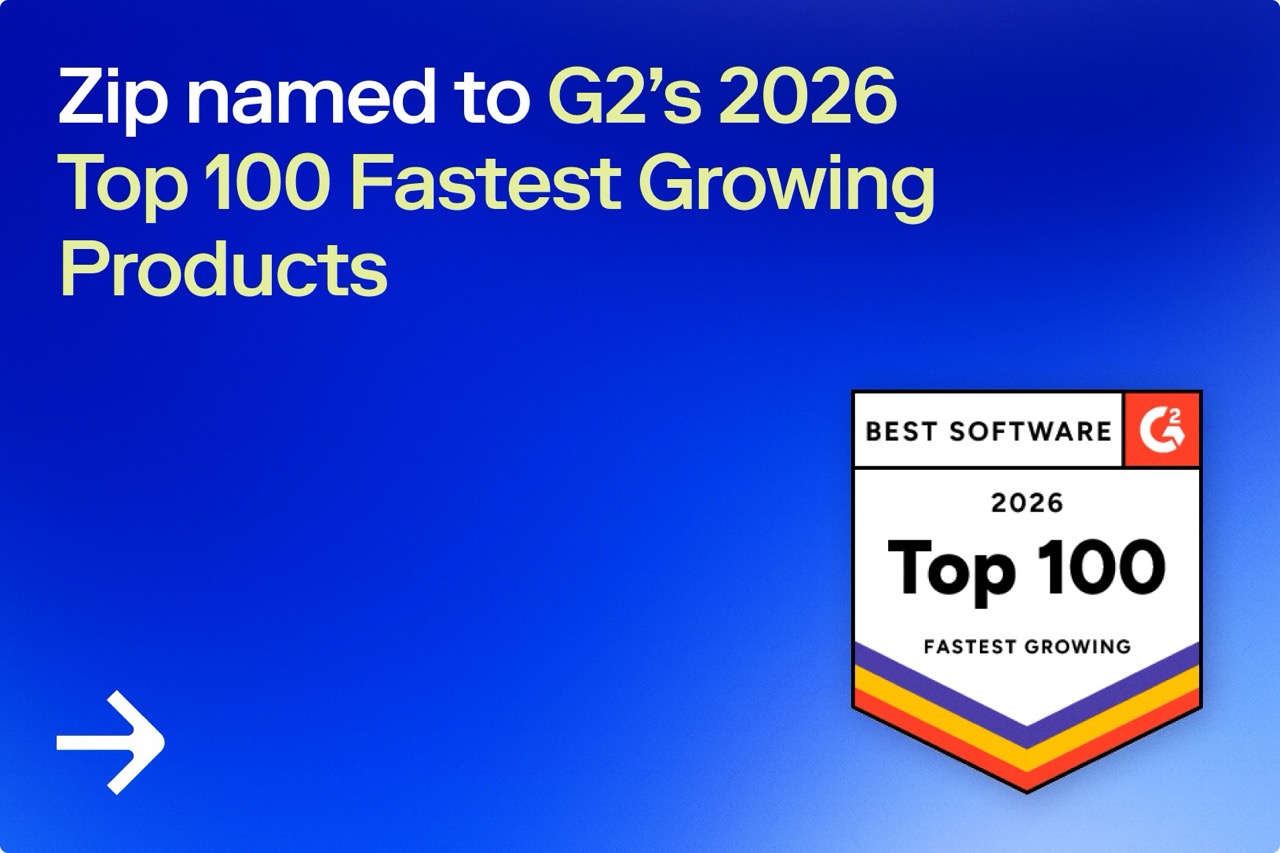
Zip Forward Europe recap: Procurement unfiltered
Dirty data. AI hype. Orchestration. Here's the panel everyone’s talking about.

A candid conversation about the future of procurement
What happens when you put some of the most unfiltered voices in procurement on one stage and ask them what’s really going on? You get a raw, funny, and deeply insightful session that cut through the noise at Zip Forward Europe 2025.
Moderated by Zip’s Head of Research, Nick Heinzmann, the "Procurement Unfiltered" panel brought together:
- Susan Walsh, The Classification Guru
- James Meads, Founder of ProcurementSoftware.site
- Felix Meng, VP at Zip and founding team member
- Nick Heinzmann, Head of Research, Zip
Together, they tackled dirty data, AI hype, procurement's image problem, and the real state of enterprise decision-making in 2025.
🎥 Missed it live? Watch the full session to hear every insight, zinger, and no-holds-barred take.
Table of Contents
- Dirty data is still your biggest risk
- Europe is leading the charge on orchestration
- The market is noisy. The signal is orchestration.
- AI won’t replace people, but it should replace admin work
- Final takeaways: Ask better questions
Dirty data is still your biggest risk
The message was clear from the start: most organizations are making decisions with bad data, and it’s a bigger problem than they think.
“Everything starts with clean data,” said Susan Walsh. “But most companies don’t have it. And they don’t have the budget to fix it either.”
James Meads backed it up. “I used to joke that as a category manager, I was the best-paid admin assistant in the company. We spend a third of our time doing work that an AI or orchestration tool should be doing.”
Felix Meng noted that orchestration platforms can help uncover the mess: “When you bring all your data together, you can actually start diagnosing where the errors are. But that only works if you get the first part right: collection.”
Europe is leading the charge on orchestration
One surprising theme? European procurement teams may be slower to move, but they’re taking orchestration more seriously than anyone.
“In Europe, decisions take longer,” said James. “But once they’re made, execution is tight. They bring in the A-team.”
Felix echoed that, noting that many European companies are starting to assign global process ownership to procurement teams, something that wasn’t the case even a few years ago. “Because orchestration is so cross-functional and complex, it needs thoughtful leadership. And European teams are stepping up.”
The market is noisy. The signal is orchestration.
From ERPs to spend analytics tools, the panel didn’t hold back on calling out the bloat in today’s procurement tech stack.
“Classic ERPs? Too clunky,” said Susan. “Some tools are charging companies to classify spend and then sending it back still messy. If any other supplier did that, we’d say they’re out of compliance.”
But not every tool is doomed. James pointed to the rise of agentic AI and the real promise of orchestration: “There are too many tools that say they solve the same problems. Orchestration is what ties it all together and makes experimentation possible without breaking workflows.”
Felix went a step further. “Anyone can spin up a clone of your product with AI today. But orchestration isn’t easy, it’s an engineering challenge. If you don’t have the team to solve it, you’re not going to last.”
AI won’t replace people, but it should replace the admin work
Is AI real or just hype? The panel agreed: it’s real, it’s evolving fast, and it won’t fix your bad processes.
“AI will make procurement fun again,” said James. “It’ll take the drudgery away, so we can focus on strategy, not spreadsheets.”
But as Susan pointed out, “AI is only as good as the data it learns from. If your training data is messy, your AI outputs will be too.”
And while companies race to adopt AI, Felix cautioned against seeing it as a shortcut: “AI is now table stakes in sales conversations. But the real work is re-platforming how your business operates. We’re just in the early innings of that shift.”
Final takeaways: Ask better questions
For all the buzz about tools, trends, and transformation, the most important point may have been the simplest.
“The best vendors don’t just answer questions well,” said Susan. “They ask you the right questions about your business. That’s how you know they understand your problems.”
Or as Felix put it: “Procurement teams need the freedom to experiment, but also the orchestration layer to do it safely. That’s the future.”
What Zip sees next
As procurement leaders navigate AI, risk, and orchestration in 2025, one thing is clear: the old playbooks aren’t cutting it. Tools alone won’t fix broken processes, but with the right strategy, the right data, and a little experimentation, teams can build something stronger.
At Zip, we’re proud to bring bold voices together to push procurement forward. As orchestration takes center stage, we’re committed to helping teams eliminate friction, surface cleaner data, and unlock more strategic value, with AI that works because the foundations are solid.
Stay tuned for more highlights from Zip Forward Europe, and in the meantime, watch the full session here.

Maximize the ROI of your business spend

Enter your business email to keep reading

























.webp)




















.avif)













.avif)










.webp)





.avif)












.avif)
